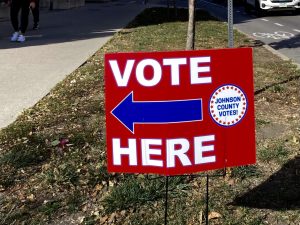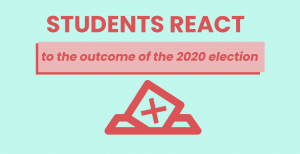Iowa’s election results
A breakdown of who won in the 2022 midterm elections, and why national results have not been announced yet
November 10, 2022
Most states have announced their results from the midterm elections. Most of Iowa voted republican, with the exception of Polk, Linn, Story and Johnson Counties.
Iowa reelected Republican Chuck Grassley for the senate; Marionette Miller-Meeks, Ashley Hinson, Zach Nunn and Randy Feenstra for the house of representatives; Kim Reynolds for governor. This election also approved Public Measure Number 1, which will add the right to bear arms to the Iowa Constitution.
However, the election results have not been called. This is because election laws are determined by each individual state, not by the federal government. For example, many states will count mail in ballots that arrive after the election, as long as they were postmarked before Nov 8.
Even though most states do not have the final count, some of these states do have official results, because news sites will ‘call’ elections before this happens, if they learn that one candidate has received enough votes that their opponent will not be able to make up the difference.
“Right now, there are four states that haven’t been called yet: Nevada, Arizona, Georgia and Alaska. It’s really heavily likely that Alaska and Nevada will both go Republican, which would put the Republicans at fifty seats. So the only way that we could tie is if the Democrats win Arizona and Georgia, and Georgia is probably going to go into a runoff because of the way their election laws work, so it’s going to be another month or so before we figure out who wins Georgia,” said West High student Kate Gleason ’23.
The state of Georgia is different from other states because of their voting laws, which require a recount if no one candidate receives more than 50% of the vote. So we might not get Georgia’s results until December.
“I’m glad that the Democrats have a fighting chance. The Republicans are going to win the house, most likely. It’s not confirmed, but there’s a good chance. But if they win both the house and the senate, they’d be able to pass a lot of laws and the only way they could be stopped is if Biden vetoes,” said Gleason.
Voter turnout for this election was just over 50%, meaning that only half of the people who were eligible to vote did. And, historically, young people vote less often than any other age group.
“I think it’s very inspiring that despite the typically low percentage of young people who vote, most of my friends who turned 18 recently voted, and I think that’s a good sign for our future,” said student Arden Kalnins ’23.







